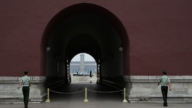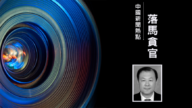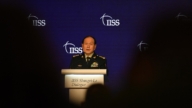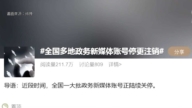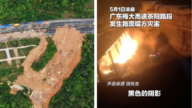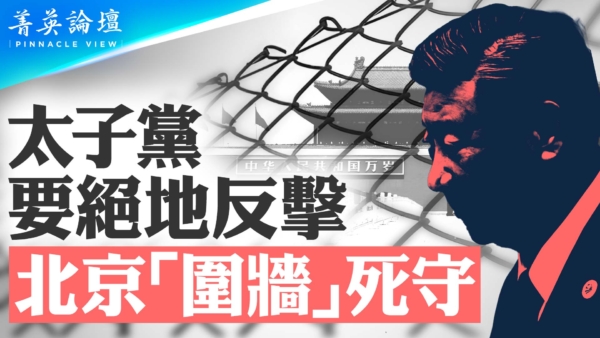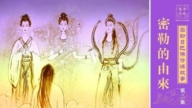【新唐人2013年01月05日訊】今年3月中共將舉行新一屆人大、政協「兩會」,新的常委班子將正式上任,外媒評論,新的常委班子趨於「平庸化」,可能會在中共內形成另一種「強書記、弱常委」的班子格局。不過外界認為,「強勢書記」只是在尋求延緩共產黨滅亡的宿命,「強書記」未必有意為中國及中國民眾做出貢獻。
香港《爭鳴》雜誌指出,中共即便無法真正反腐,也會以反腐為政治口號來愚弄百姓。不同的權力時代,反腐政治有不同的表現:江澤民時代,「大腐敗反小腐敗」,最終結果是「以腐敗換團結」;胡錦濤時代,「點射式反腐」完全政治化,陳良宇與薄熙來兩位政治局委員被點中,成為胡政治的兩大亮點。習近平時代,開啟王岐山以網絡為武器,掀起「民粹式反腐」。
外界認為王岐山發動「網絡反腐」,背後有習、李的支持,結果就是排名在王岐山之前的張德江、俞正聲與劉雲山,以及排名在王岐山之後的張高麗「被虛化」。有消息指稱:習、李選擇的「弱常委制」,是他們與江澤民和胡錦濤兩代艱難談判的結果。
旅美中國問題研究人士張健認為,中共內部的強弱只是一臺戲,習近平上臺之後搞的所謂反腐,矇蔽了很多民眾的眼睛。
中國問題研究人士張健:「無論他是強勢還是弱勢都是十八大既定的一個方針。現在習近平換種玩法,很多人不適應,也不知道共產黨賣的甚麼藥?共產黨就是要保證它自己的江山,保證它的一黨獨裁這樣的體制,保證它繼續殘剝人民,無論它是強還是弱,是虛還是實,都是這幾個人在做的一個聯合的演出。」
也有評論認為,在所謂的「習李體制」下,總理與總書記的角色位置,與「胡溫體制」比,可能會倒過來,在胡溫時期,溫家寶是一個躍躍慾試,要破局的人,而胡錦濤是個維穩派,現在習近平可能是個躍躍慾試要破局的人,而二把手李克強是一個守成之人,在這種情況下,破局的可能性大。
張健:「每一個中國當官的,每一個人都沾滿了老百姓的鮮血,這樣的人怎麼可能把救中國作為第一使命,是不可能的。他也救不了,共產黨根本無法救中國,共產黨的體制只培養獨裁、專制,只培養這個,不會培養一代明君,怎麼可能對習近平更加寄予厚望呢?」
北京時政觀察人士華頗指出,習近平和王岐山的反腐動作是在效仿當年鄧小平的經濟體制改革,企圖從既得利益集團裡拿出一小塊蛋糕來平息民憤,繼續共產黨執政的合法性,不過遇到了利益集團的強烈狙擊。華頗說,像收入分配制度改革,和土地徵地制度改革,都是動了既得利益集團的蛋糕,所以遲遲不能出臺。
北京時政觀察人士華頗: 「他(習近平)改變的話只能在經濟上改變,只能在草根階層的經濟訴求上進行一些調整,說白了就是重新分一分蛋糕,能夠化解一下社會矛盾,不要指望習近平能搞其他的。而且這個反腐我看也是前途渺茫,現在中共腐敗嚴重,而且級別越來越高,所以看到當網路舉報這股風越來越旺的時候,中共限制網路的法律法規就出臺了。」
「網絡反腐」的同時,整個中共官場卻形成了網絡恐懼症。去年年末,官媒《人民日報》率先發表短文《網絡需要依法運行》,要求「管住不負責任的謠言」;《人民網》也發表文章《管一管網絡亂象是多數百姓願望》;而中宣部直控的《光明網》同時發表評論員文章:《互聯網需要高級立法》,要求「最大程度消除網絡的負面影響」。
前《新華社》駐蘇俄的高級記者給新上任的中宣部部長劉奇葆寫信,信上說,「輿論失控是前蘇聯亡黨與解體的最大推力」。
採訪編輯/劉惠 後製/鍾元
CCP Anti-Corruption Via Internet Encounters Obstacles
In March this year, a new session of the National
People’s Congress, and People’s Political Consultative Committee will be held.
The new leadership of the Chinese Communist
Party (CCP) will formally take power.
Overseas media commented that the new sessions
of the Politburo Standing Committees are mediocre.
So, it will probably form an inner leadership structure
of a “strong secretary” and “weak standing committees”.
However, observers think the so-called “strong secretary”
was only seeking a method to delay the death of the CCP.
The “strong secretary” may be not sure how
to contribute to China and the Chinese people.
Hong Kong’s “Chengming” magazine pointed out that
even if the CCP had no way of actioning anti-corruption,
it would use it as propaganda to fool the public.
Anti-corruption took different forms
during different era’s of CCP rule.
Under Jiang Zemin, it took the form of “big
embezzlers standing against minor embezzlers”.
This resulted in a united leadership
dependent on corruption.
Under Hu Jintao, they acted “intentionally
against corruption”, and two Politburo committees of Chen Liangyu and Bo Xilai were chosen.
They became the two strengths of Hu’s dictatorship.
In Xi Jinping’ time, Wang Qishan initiated anti-corruption
through the internet, or so-called “social anti-corruption”.
Observers suggest Wang Qishan initiated anti-corruption
via the internet with Xi Jinping’s and Li Keqiang’s support.
The result is Zhang Dejiang, Yu Zhengsheng
and Liu Yunshan, whose positions were higher
than Wang Qishan, and Zhang Gaoli whose
position was lower than Wang, are all weakened.
Some reports said that Xi and Li chose the “weak
standing committees” in order to compromise
negotiations with Jiang Zemin and Hu Jintao.
Zhang Jian, US-based China expert, suggests that it
is only an internal show of who is strong and who is weak.
Xi Jinping’s ‘anti-corruption’ has fooled many people.
Zhang Jian: “No matter who is strong or weak, the
outcome has been decided in 18th Party Congress.
Now, Xi changed the game and some people are
not used to it, so don’t know the purpose of the CCP.
The purpose of the CCP is just to maintain its regime
and the dictatorship system of one-party rule in China.
It can then guarantee to continue to oppress people.
So no matter who is strong or weak, it is only
a show played out by the leadership of the CCP.
Analysts believe that under Xi and Li’s administration, the
roles of Premier and General Secretary’s may be reversed.
During the Hu-Wen era, Wen Jiabao appeared to be eager
to break the system, while Hu wanted to maintain stability.
Now, Xi is a man who is eager to break the old system,
while his assistant Li Keqiang is a conservative.
So, in this case, it’s more possible to break the system.
Zhang Jian: “Every official in China
owes much to Chinese people.
It’s impossible that such people will act
with saving China as their first mission.
In essence, the CCP can’t save
China, and it can only train a dictator.
The Party can’t train a revolutionary ruler within it’s
system. How can you have high hopes to Xi Jinping?”
Hua Po, political observer in Beijing, comments that Xi
and Wang’s anti-corruption policies are simulating
those of Deng Xiaoping’s economic system revolution.
They tried to remove small interests from interest groups,
to appease the public’s anger, and continue CCP rule.
However, they are strongly propped
up by these interest groups.
Hua Po said that, as with the income distribution
system revolution and land acquisition system revolution,
this touches the profits of the interest
groups, thus it can’t be introduced.
Hua Po: “Xi will only change the system
economically, only take up some adjustment
for the economical demands of ordinary people.
Frankly, it tries to redistribute interests
to try to resolve some social conflicts.
Don’t expect Xi to take any other large scale
actions. I think his ‘anti-corruption’ is hopeless.
Now, corruption inside the CCP is more serious.
When internet ‘anti-corruption’ begins to thrive,
the CCP will introduce restrictive rules and
regulations to restrict the internet users opinions.”
Accompanying internet anti-corruption, the
whole CCP officialdom has internet phobia.
At the end of last year, official CCP media
People’s Daily first published a short article,
“Internet activities need to accord with the law”.
It asked to control irresponsible rumors.
‘people.com’ also issued an article called “controlling
the disordered internet is the intention of the people”.
Guangming network, controlled by central
propaganda department, published an article called,
“there needs to be legislation for the internet”.
It discussed at length the need to eliminate
the negative influence of the internet.
A former senior Xinhua News Agency journalist
in the Soviet Union wrote a letter to Liu Qibao,
the new minister of the propaganda department.
He said that losing control of public opinion was the biggest
force of the death and disassembly of former Soviet Union.


